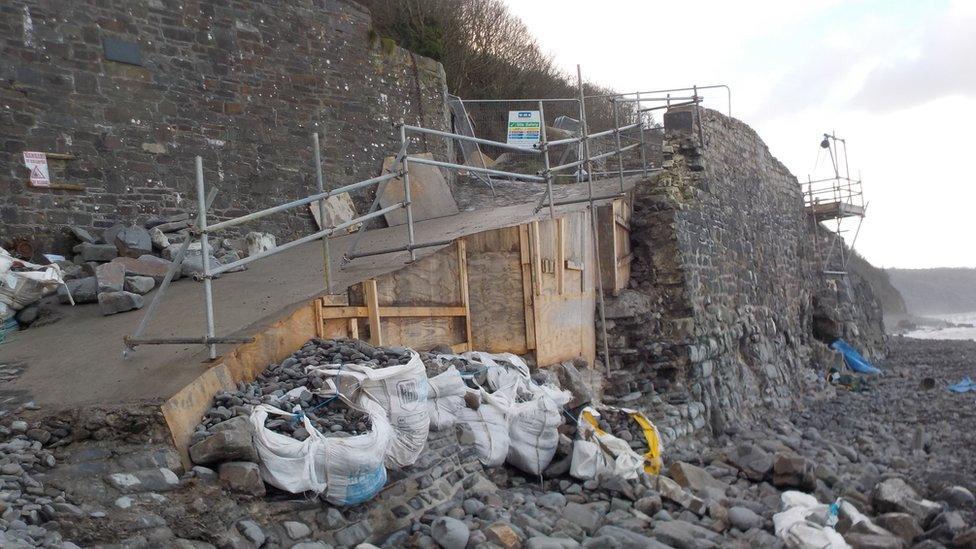More money spent on storm-battered South West Coast Path
- Published
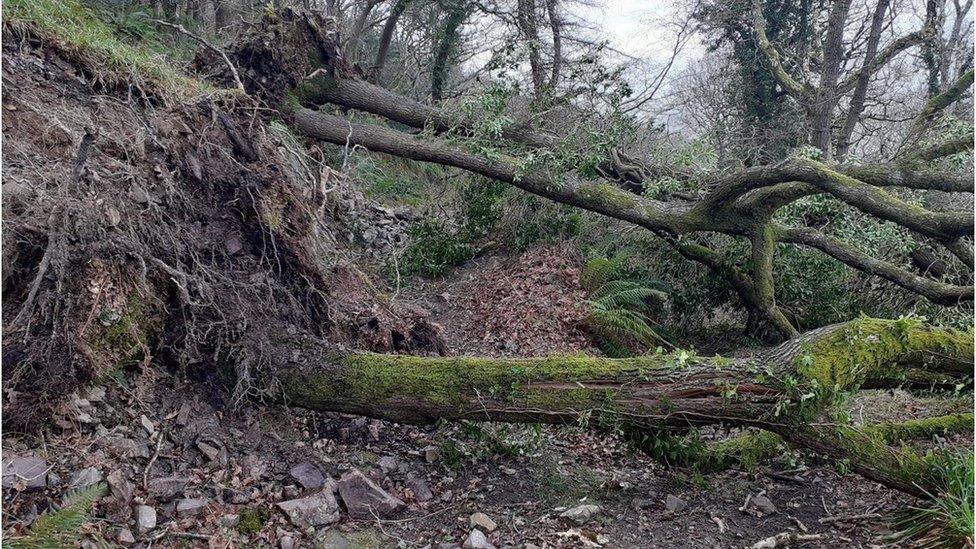
High winds in February felled lots of trees along the path which had to be cleared
Maintaining a 630 mile (1,014 km) coast path is costing more due to damage caused by stormy weather, a charity has said.
The South West Coast Path Association said on average, in recent years, there had been up to a 70% increase in the amount spent for each mile of the South West Coast Path.
In February, Storms Dudley, Eunice and Franklin battered the country.
The path stretches from Minehead to Poole.
Julian Gray, director of the association which looks after the path, said: "It doesn't matter what direction a storm comes in from it's going to hit some part of the trail and this year started with a bit of a bang in February, when we had three named storms coming in."
In the winter of 2021/2022, the Met Office said six storms were named, external, which included a red wind warning issued for the South West.
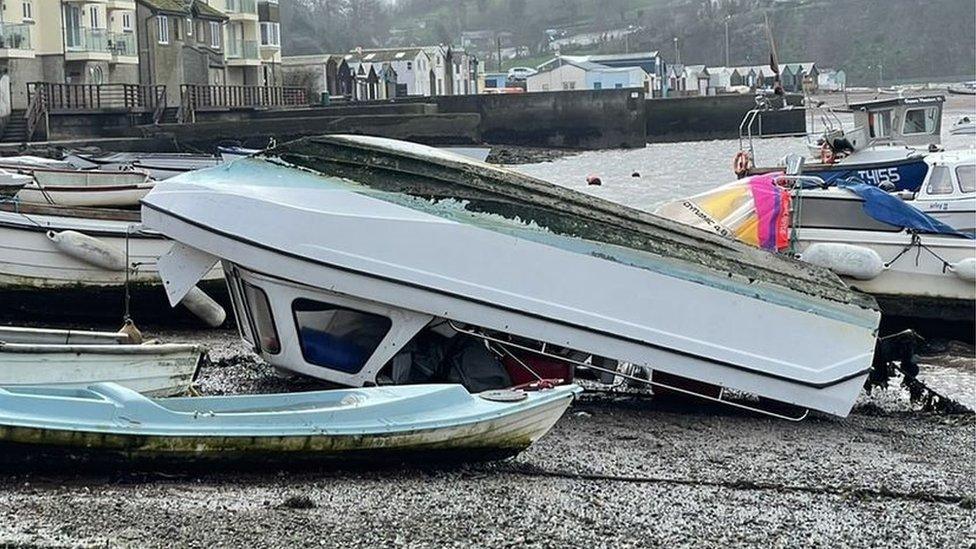
In Teignmouth, boats were overturned in the rough conditions caused by Storm Eunice
Mr Gray said the February storms caused coastal erosion and high winds felled lots of tree close to the path, which had to be cleared.
He said stormy weather was therefore "increasing our cost for managing the coast path".
"Five or six years ago we were spending around the figure of about a £1,000 a mile [per year], just to kind of maintain the path to the national trail standard," he said.
"Now we're saying, £1,600 to £1,700 a mile [per year].
"That gives you an idea how rapidly things are changing."
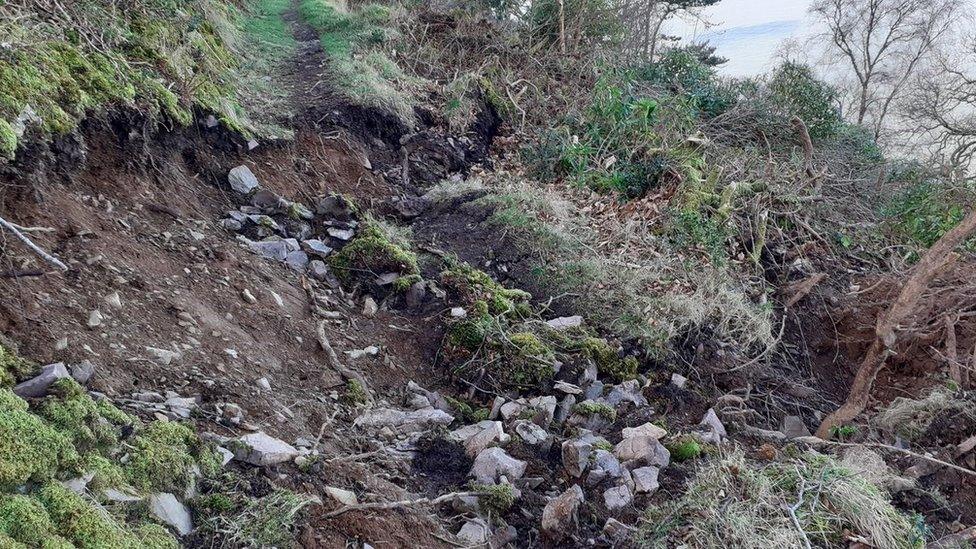
Mr Gray said repairs included rebuilding bridges, removing storm-felled trees, and maintaining access
He said current "inflationary pressures" were increasing costs further, but storm damage costs had been rising for several years.
Mr Gray said repairs included rebuilding bridges, removing storm-felled trees, and maintaining access.
He said in 2022 heavy rain also caused surface erosion and there were wildfires during the summer months - all "real threats" to the path and coastal areas.
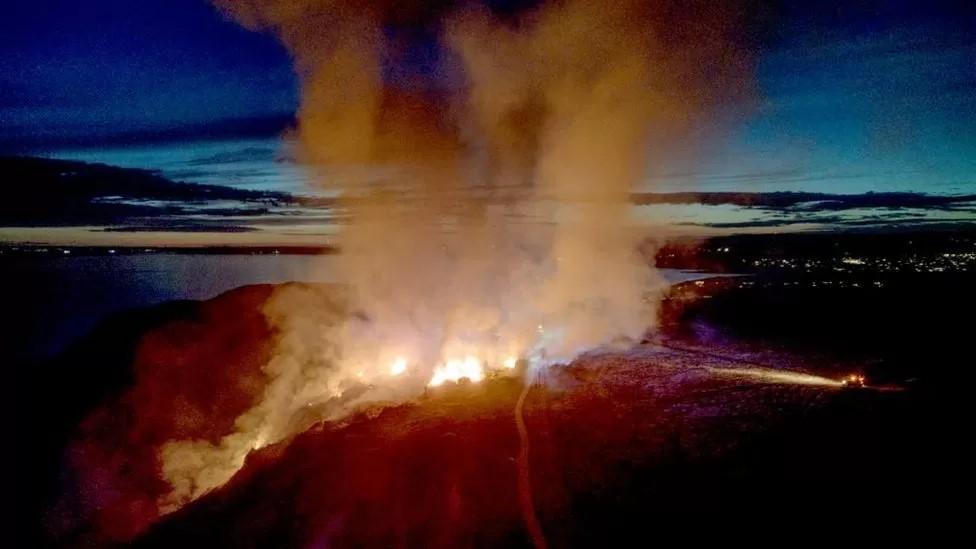
In July, landowners, the National Trust, said dry ground and hot weather had probably caused the Bolberry Down fire
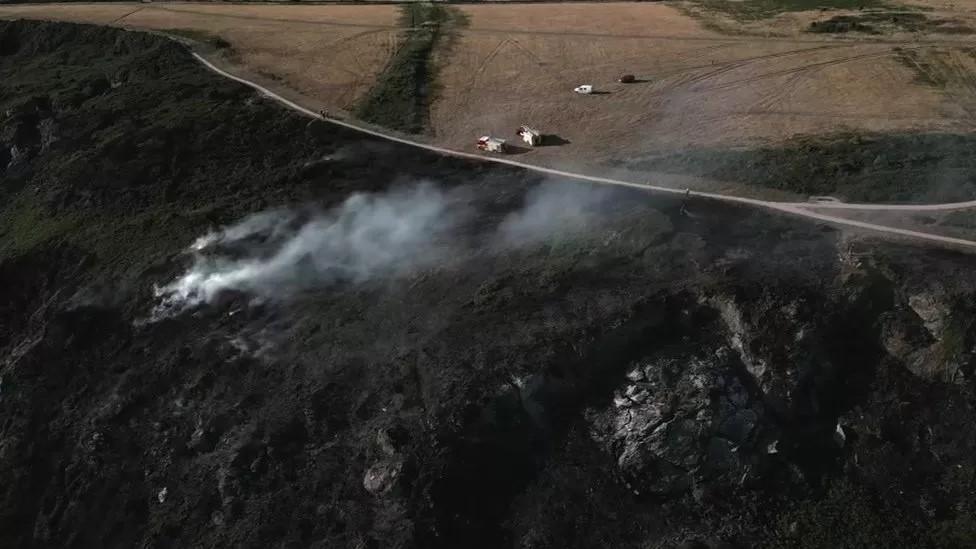
At its peak, fire crews pumped 3,000 litres of water per minute from the sea to douse the Bolberry Down wildfire
He added the coast path was a "significant attraction" and used by about nine million people a year which brought in about £520m to the local economy.
Due to the pandemic he said there had been a "shift in the patterns of people using the trail, we're seeing more local people, using their local path".
In 2023, the association celebrates its 50th anniversary and is planning a relay walk along the entire coast path, external.

Follow BBC News South West on Twitter, external, Facebook, external and Instagram, external. Send your story ideas to spotlight@bbc.co.uk, external.
- Attribution
- Published21 February 2022
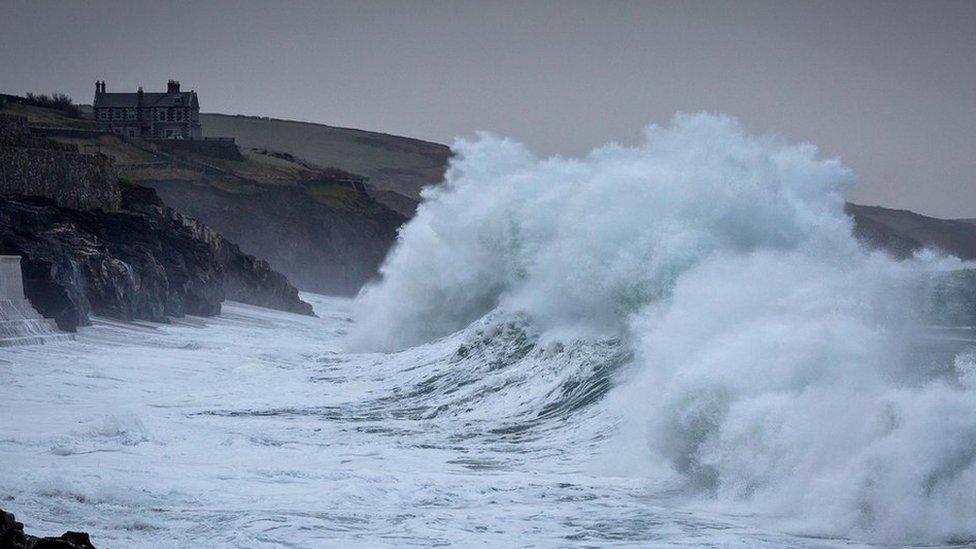
- Published26 March 2022
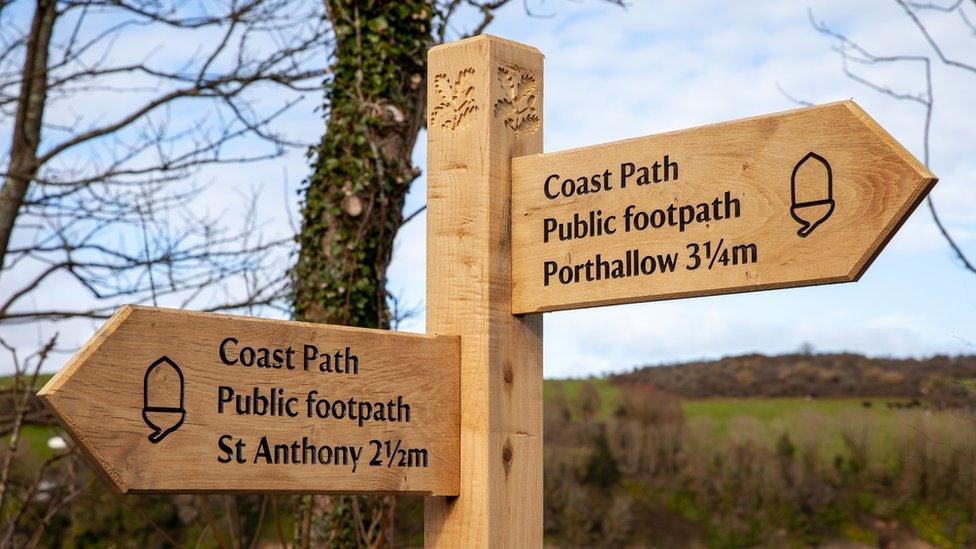
- Published7 March 2021
